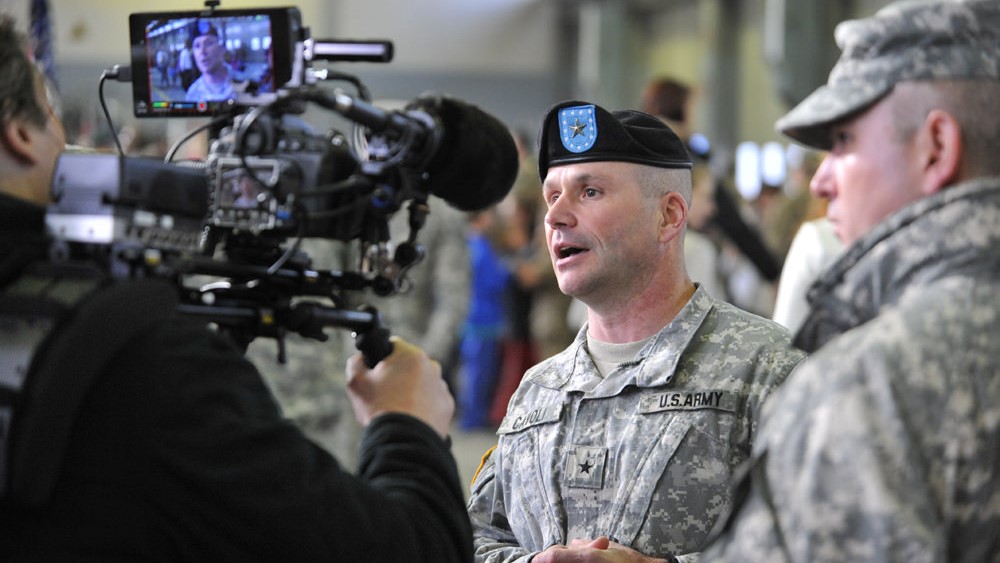General Christopher Cavoli says Russia’s war is part of a larger campaign to destabilize the West—and Ukraine is holding the front line for the world.
Others are reading now
Russia’s invasion of Ukraine isn’t just a regional conflict—it’s an assault on the international system itself, according to General Christopher G. Cavoli, the Supreme Allied Commander Europe and head of U.S. forces on the continent.
Speaking to the House Armed Services Committee on April 5 during its annual defense review, Cavoli delivered a clear-eyed warning about Moscow’s broader ambitions and the growing convergence among authoritarian regimes.
Russia is a chronic and growing threat,” he said. “It is actively waging a campaign of destabilization across Europe and beyond.
Also read
A Coalition of Adversaries
Cavoli, a four-star general with nearly four decades of service, including combat tours in Iraq and Afghanistan, emphasized that the war in Ukraine is part of a wider strategic alignment.
“Russia’s partnerships with Iran, North Korea, and the Chinese Communist Party are increasingly posing a global risk,” he noted.
And Ukraine, in this context, is the frontline state in a much larger confrontation.
Despite the war dragging into its fourth year, Cavoli pushed back firmly on the idea that Ukraine is on the verge of collapse.
“The Ukrainians are in very strong defensive positions right now and are improving weekly,” he told lawmakers. “It is very hard to envision Ukraine collapsing and losing this conflict.”
He acknowledged that Kyiv is not “winning” in the traditional sense, but said its position continues to strengthen:
“They are trying to win, and that starts with making sure Russia doesn’t.”
He praised Ukraine’s rapid military evolution.
“They started from a cold start and have developed very, very quickly,” he added, citing the country’s growing ability to hold ground and adapt its strategy.
Russian Offensives Stalling, Troops Degraded
Cavoli also cast doubt on Moscow’s ability to regain momentum.
“They are nowhere near being able to make a big push right now,” he said, citing recent Russian setbacks in eastern Ukraine, including around Chasiv Yar, Toretsk, and Pokrovsk.
Describing a shift in Russian tactics, Cavoli noted that once-large offensives have now devolved into smaller infantry assaults with limited gains.
“In fact, Ukraine has gained some ground there recently,” he said.
He also highlighted the role of Ukrainian resistance near the Russian border around Kursk and Belgorod, where local counteroffensives are keeping Russian forces tied down.
Western Weapons Making a Difference
Cavoli gave high marks to the performance of Western-supplied weapons—especially F-16 fighter jets and Patriot missile systems—in Ukraine’s defense.
“The F-16s are flying daily and have defeated a large number of cruise missile threats,” he said, adding that these aircraft were donated by European allies, not the U.S.
As for the Patriot systems, Cavoli admitted initial skepticism about how quickly Ukraine could master such advanced equipment. “But they took to it like fish to water,” he said. “In fact, we are now learning from their employment techniques.”
Cavoli also addressed concerns about U.S. weapons being misused or diverted.
“We are tracking down to virtually every bullet. There is no evidence whatsoever of diversion or theft,” he confirmed.
A Broader Strategy—and a Deeper Threat
The general concluded that Russia’s actions in Ukraine are part of a larger historical pattern of aggression, not a one-off.
“My professional assessment is that this is a recurring feature of Russian history and current behavior,” Cavoli said, adding that Moscow is likely studying U.S. military responses in Ukraine to inform possible Chinese moves on Taiwan.
“They are certainly cooperating—not for the benefit of the USA.”
Since the war began, Ukraine has transitioned into a largely Western-equipped fighting force, which Cavoli called “a fantastic feat” considering the scale of the Russian army.
“We are witnessing a historic test of international stability,” Cavoli told lawmakers. “Our strengthened allies increase our strength. And our deep relationships give us access, basing, and intelligence that are absolutely vital.”



